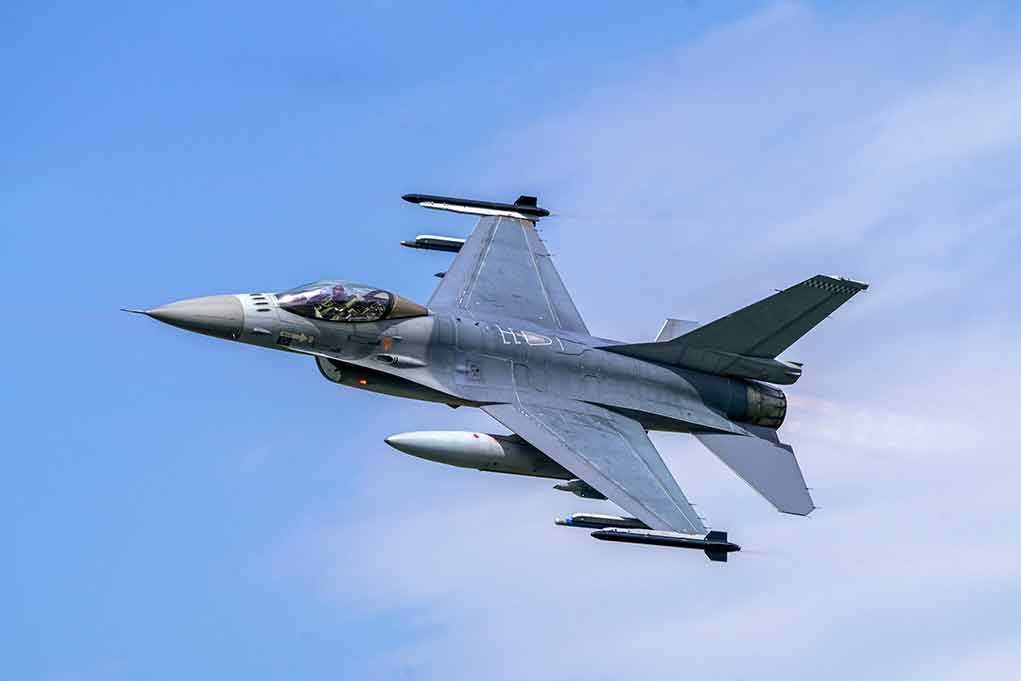
Russia issues stark nuclear warning as Estonia welcomes NATO’s F-35A jets to its doorstep, escalating tensions in a dangerous game of military brinkmanship.
Key Takeaways
- Estonia has declared readiness to host NATO’s F-35A stealth jets capable of carrying nuclear weapons, directly challenging Russia
- Kremlin spokesman Dmitry Peskov condemned the move as an “immediate danger” and direct threat to Russia’s security
- Estonian Defence Minister Hanno Pevkur confirmed their willingness to host allied forces regardless of nuclear capabilities
- The announcement comes as Britain purchases 12 F-35A jets for NATO’s airborne nuclear mission
- Russia has minimal diplomatic relations with Baltic states, further heightening regional military tensions
Estonia Challenges Russia with NATO Nuclear-Capable Jets
Estonia has boldly declared its willingness to host NATO’s advanced F-35A stealth fighter jets on its territory, despite these aircraft being capable of carrying nuclear weapons. This announcement has sent shockwaves through Moscow, coming from a NATO member that shares a direct border with Russia. Estonian Defence Minister Hanno Pevkur made the country’s position clear, emphasizing their commitment to supporting NATO operations regardless of the specific capabilities of the aircraft involved.
“If some of them, regardless of their country of origin, have a dual-use capability to carry nuclear weapons it doesn’t affect our position on hosting F-35s in any way,” said Hanno Pevkur, Estonian Defence Minister.
The Estonian government has positioned this move as part of its routine NATO obligations, with Pevkur emphasizing, “Of course we are ready to host our allies.” Estonia already serves as a rotating base for NATO aircraft tasked with protecting Baltic airspace. The timing of this announcement is particularly significant as it follows Britain’s recent decision to purchase at least 12 F-35A jets specifically for NATO’s airborne nuclear mission, adding a new dimension to the alliance’s deterrence strategy along Russia’s western border.
Kremlin’s Fierce Response to “Immediate Danger”
The Kremlin’s reaction was swift and severe. Dmitry Peskov, spokesman for President Putin, labeled Estonia’s willingness to host these advanced fighter jets as an “immediate danger” to Russia. The Russian government views the potential deployment of nuclear-capable aircraft just minutes flying time from major Russian cities as a significant escalation in NATO’s posture. This development comes amid already heightened tensions between Russia and the West over Ukraine and other regional security issues.
“Of course it would be an immediate danger,” said Dmitry Peskov, Kremlin spokesman.
Peskov didn’t stop at calling the move dangerous. He went further, dismissing the entire announcement as part of a pattern of “absurd thoughts” coming from Baltic politicians. This dismissive rhetoric highlights Moscow’s frustration with what it perceives as an increasingly hostile NATO encirclement. The Kremlin spokesman pointedly noted that Russia maintains minimal diplomatic relations with the Baltic republics of Estonia, Latvia, and Lithuania, all former Soviet states that have embraced Western military and political alliances since gaining independence.
Deeper Strategic Implications for NATO and Russia
The F-35A deployment represents more than just another rotation of NATO aircraft. These fifth-generation stealth fighters represent the cutting edge of Western military technology, with advanced radar-evading capabilities and sophisticated electronic warfare systems. Their potential presence in Estonia significantly alters the strategic calculation for Russian military planners, who must now contend with the possibility of nuclear-capable stealth aircraft operating from bases just minutes from Russian territory.
“Unfortunately, the leaders of the Baltic countries express a lot of absurd opinions,” said Dmitry Peskov.
The United Kingdom’s decision to purchase 12 F-35A fighters specifically configured for nuclear missions adds another layer to this developing situation. These aircraft will be capable of carrying both conventional weapons and tactical nuclear armaments, providing NATO with enhanced flexibility in its deterrence posture. For Estonia and other Baltic states that have long feared potential Russian aggression, hosting such advanced capabilities represents both a security guarantee and a statement of their firm commitment to the Western alliance despite constant pressure from their larger eastern neighbor.
A New Chapter in Baltic-Russian Relations
This latest confrontation between Estonia and Russia highlights the continuing deterioration of relations between Moscow and the Baltic states. Since joining NATO in 2004, Estonia, Latvia, and Lithuania have consistently sought to strengthen their security ties with Western allies, viewing Russia as their primary security threat. Moscow, meanwhile, has repeatedly condemned NATO’s eastward expansion as a provocation and threat to its own security interests. The potential deployment of nuclear-capable F-35s represents a significant escalation in this ongoing standoff.
The stark divide between Russia and its former Baltic territories shows no signs of narrowing. Instead, military developments like Estonia’s willingness to host advanced NATO aircraft further entrench the geopolitical reality of a new iron curtain descending across Eastern Europe. With minimal diplomatic channels remaining open and increasingly confrontational military postures on both sides, the risk of miscalculation or unintended escalation in this strategically vital region continues to grow, raising serious concerns for European security.











